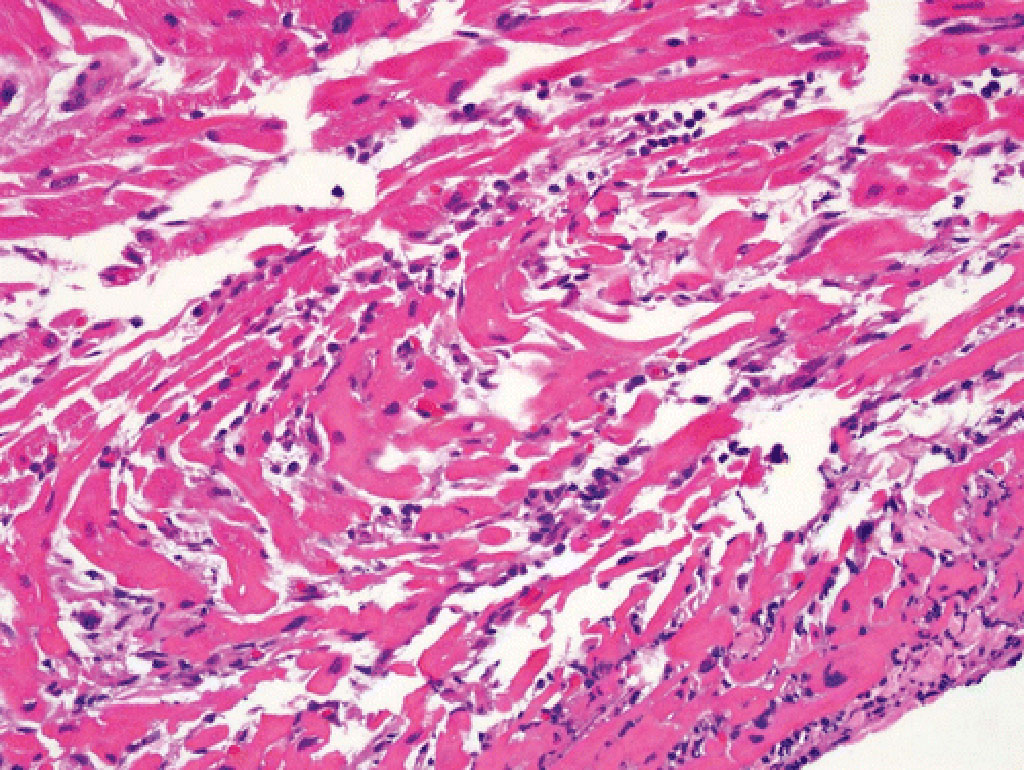Blood Test for Myocarditis Detects Heart Inflammation
Posted on 05 Dec 2022
Myocarditis is a difficult condition to diagnose. Symptoms include a temperature, fatigue, chest pain and shortness of breath, which can all be easily mistaken for other conditions. The gold standard method for diagnosis is a heart biopsy, an expensive, invasive, and risky procedure which can sometimes still miss signs of the condition.
T cell–mediated immunity has been linked to a variety of heart diseases, from classic inflammatory cardiac conditions, such as myocarditis, to diseases without a readily evident pathogenic inflammatory component, such as hypertensive cardiomyopathy. T cell activation in cardiac inflammation often results from the interaction of an external environmental trigger (viral infection) or an endogenous stimulus (mechanical or oxidative stress) with the immune system of the host.

A large team of medical scientists led by those at Queen Mary University of London (London, UK) compared blood samples from several groups of patients, including 34 people with a final diagnosis of myocarditis. Study participants were recruited into the following patient groups: acute myocarditis (AM), idiopathic dilated cardiomyopathy (iDCM), acute ST-segment–elevation myocardial infarction (STEMI), cardiac surgery, ischemic heart failure (IHF), or active Sjögren syndrome. A group of individuals with known familial heart muscle disease (fHMD) were also studied. Healthy controls (HCs) were recruited locally. For immunohistology, postmortem tissue samples from five patients with AM and five patients with DCM were obtained. Cell proliferation was assessed using the cell proliferation modeling module on FlowJo flow cytometry software (FlowJo, Ashland, OR, USA).
The investigators looked for the presence of T-cells expressing a molecule called cMet in the blood strongly indicates that a person has myocarditis. They reported that an increased proportion of c-Met+ CD4+ memory T cells co-expressing the CXCR3 and CCR4 chemokine receptors was detectable in patients with AM or iDCM compared with the other groups. In contrast, no significant difference was detected in memory c-Met+ CD8+ CXCR3+ CCR4+T cells. However, both CD4+ and CD8+ c-Met+ CCR4+ T cells were significantly increased. A phenotypic and functional analysis of total circulating memory T cell populations of participant groups detected differences in T cell subsets and in markers of T cell activation.
The team noted that that cMet-expressing T cells levels could be detected through a routine blood test that could cost less than GBP 50 with results available within hours.
Sir Nilesh Samani, MD, a Professor of Cardiology, said, “This blood test could revolutionize the way we diagnose myocarditis, allowing doctors to step in at a much earlier stage to offer treatment and support. It would also reduce the need for the risky, invasive tests currently used, saving the NHS time and money and freeing up vital resources.”
The authors concluded that in this novel study with a limited number of patients, the potential translational implications of this work are evident, namely the diagnostic and prognostic potential of monitoring c-Met+ T cells in the venous blood, and provided a new target pathway for therapeutic intervention. The study was published on November 23, 2022 in the journal Circulation.
Related Links:
Queen Mary University of London
FlowJo













